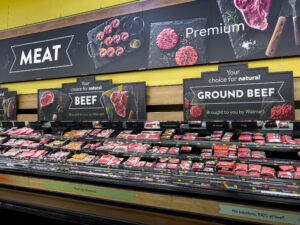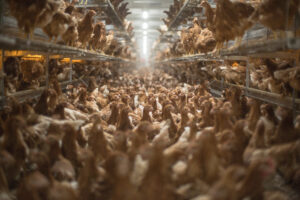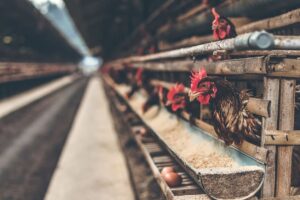Climate Change Could Double the Price of Beer
The world’s brewers face paying much higher prices for a key ingredient of beer as climate change hits barley crop yields. Consumption of beer will fall as prices are forced up. (Connor Ki/Wikimedia Commons)
Consumption of beer will fall as prices are forced up. (Connor Ki/Wikimedia Commons)
Beer will be in short supply and double in price because of the difficulty of growing one of its key ingredients, barley, in a warming world.
Recurrent droughts and increased heat will cause severe reductions in barley yields across the world, forcing a “dramatic” fall in beer consumption, according to a study by the UK’s University of East Anglia (UEA).
Since beer is the world’s most popular drink by volume, this will have significant social and economic effects, according to the scientists.
While barley is used in food, and particularly in animal and chicken feed, around 17% of the highest quality grain is used for malting and making beer. In some countries, barley is grown almost exclusively for beer − for example, 83% in Brazil is used for malting.
It is the various consuming industries competing for the remaining barley that will drive up the cost of grain, and therefore the beer – in some cases, doubling the price of a liter and substantially reducing demand.
Drop in consumption
The study, published in Nature Plants journal, estimates that extreme weather worldwide will reduce the volume of beer drunk by 16% − which equates to 29 billion liters. The drop in beer consumption would be sharpest in countries that currently drink the most, including China, the US and the UK.
While previous climate studies have focused on staple crops such as wheat, maize, soybeans and rice, and consumer goods such as wine and coffee, this is the first to look at the effect of reduced barley yields on beer.
As countries seek to adapt to climate change, governments may decide the priority for crops like barley is to produce food rather than beer. Even without this policy decision, the price of barley will increase as it becomes in short supply.
“There is little doubt that, for millions of people around the world, the climate impacts on beer availability and price will add insult to injury”
Dabo Guan, professor of climate change economics at UEA’s School of International Development and coordinator of this latest research, says: “While the effects on beer may seem modest in comparison to many of the other − some life-threatening − impacts of climate change, there is nonetheless something fundamental in the cross-cultural appreciation of beer.
“It may be argued that consuming less beer is not in itself disastrous, and may even have health benefits. Nevertheless, there is little doubt that, for millions of people around the world, the climate impacts on beer availability and price will add insult to injury.”
He argues that a sufficient beer supply might help with “the stability of entertainment and communication in society”.
Beer supply and price
The international study, involving researchers from the UK, China, Mexico and the US, identified extreme climate events and modeled the impacts of these on barley yields in 34 world regions. They then examined the effects of the resulting barley crop reduction on the supply and price of beer in each region, under a range of future climate scenarios.
Their findings show that global and country-level barley supply would decline progressively in more severe extreme event years, with the largest mean supply decreasing by 27-38% in some European countries, such as Belgium, the Czech Republic and Germany.
It is countries with smaller total beer consumption that face the largest percentage reductions in the amount drunk.
The volume of beer consumed in Argentina would fall by 0.53 billion liters − equivalent to a 32% reduction − during more severe climate events. Even in the least severe climate events, total beer consumption in Argentina and Canada would decrease by 0.27 billion liters (16%) and 0.22 billion liters (11%) respectively.
Your support matters…Independent journalism is under threat and overshadowed by heavily funded mainstream media.
You can help level the playing field. Become a member.
Your tax-deductible contribution keeps us digging beneath the headlines to give you thought-provoking, investigative reporting and analysis that unearths what's really happening- without compromise.
Give today to support our courageous, independent journalists.






You need to be a supporter to comment.
There are currently no responses to this article.
Be the first to respond.